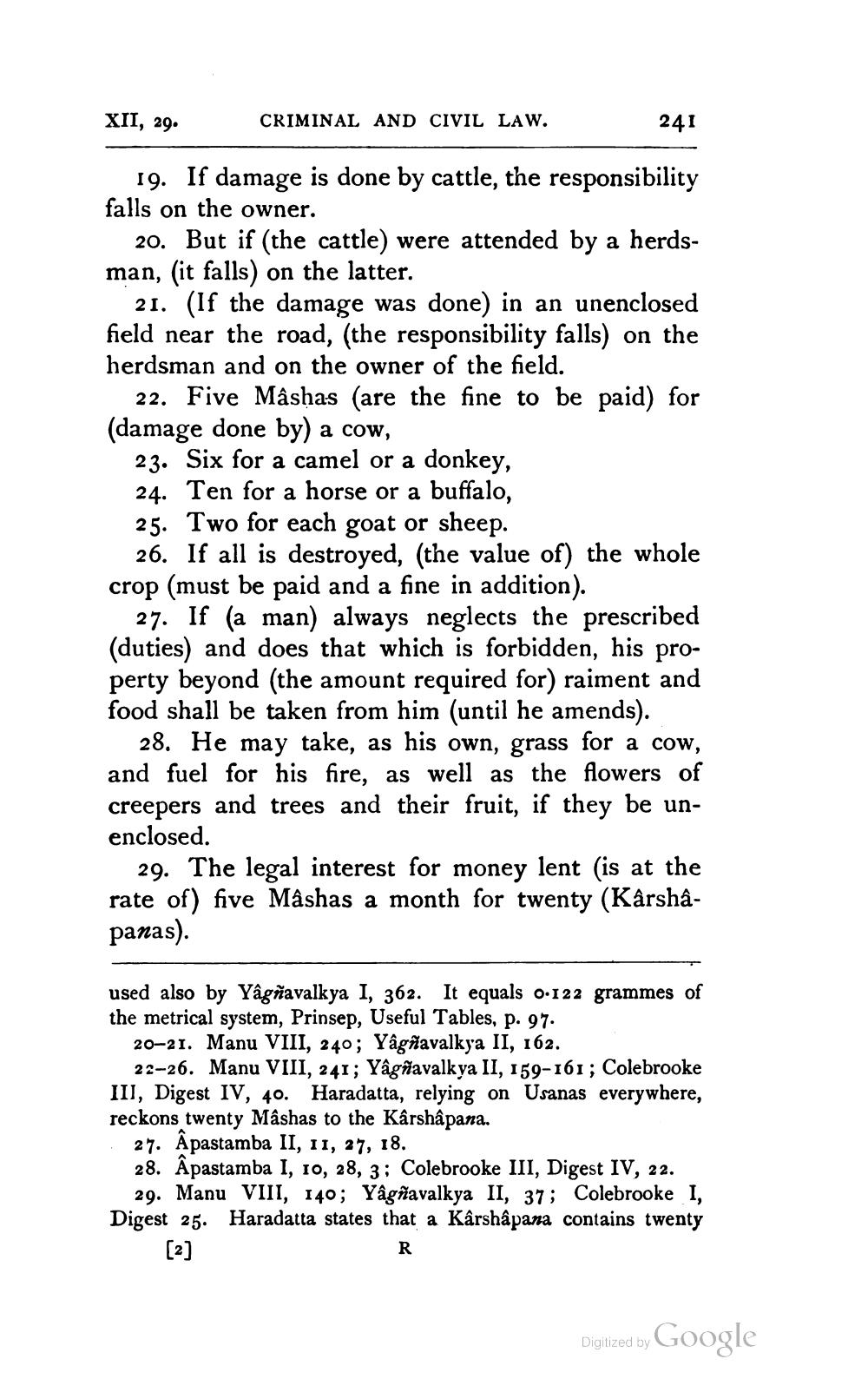________________
XII, 29.
CRIMINAL AND CIVIL LAW.
241
19. If damage is done by cattle, the responsibility falls on the owner.
20. But if (the cattle) were attended by a herdsman, (it falls) on the latter.
21. (If the damage was done) in an unenclosed field near the road, (the responsibility falls) on the herdsman and on the owner of the field.
22. Five Mâshas (are the fine to be paid) for (damage done by) a cow,
23. Six for a camel or a donkey, 24. Ten for a horse or a buffalo, 25. Two for each goat or sheep.
26. If all is destroyed, (the value of) the whole crop (must be paid and a fine in addition).
27. If (a man) always neglects the prescribed (duties) and does that which is forbidden, his property beyond (the amount required for) raiment and food shall be taken from him (until he amends).
28. He may take, as his own, grass for a cow, and fuel for his fire, as well as the flowers of creepers and trees and their fruit, if they be unenclosed.
29. The legal interest for money lent (is at the rate of) five Mâshas a month for twenty (Karshâpanas).
used also by Yâgñavalkya I, 362. It equals 0.122 grammes of the metrical system, Prinsep, Useful Tables, p. 97.
20-21. Manu VIII, 240; Yâgñavalkya II, 162.
22-26. Manu VIII, 241; Yâgñavalkya II, 159-161; Colebrooke III, Digest IV, 40. Haradatta, relying on Usanas everywhere, reckons twenty Mâshas to the Kârshậpana.
27. Âpastamba II, 11, 27, 18. 28. Âpastamba I, 10, 28, 3; Colebrooke III, Digest IV, 22.
29. Manu VIII, 140; Yâgñavalkya II, 37; Colebrooke I, Digest 25. Haradatta states that a Kârshapana contains twenty
Digitized by Google




